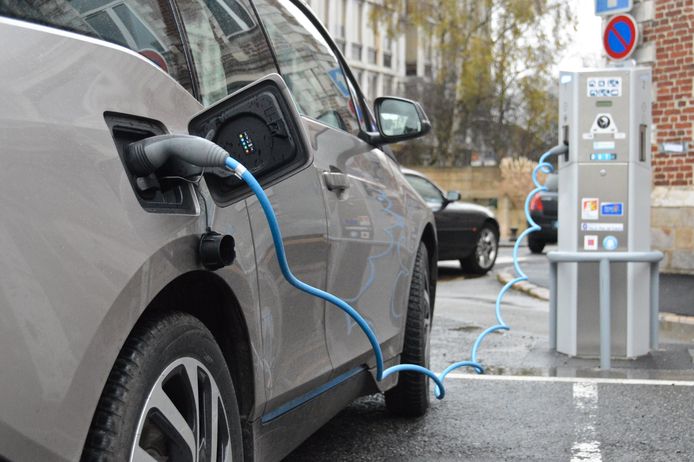People living in Flanders who drive a fully electric car but don't have the capacity to install their own charging point can soon request a public property charging point nearby.
The local municipality will be in charge of placing the point, which must be located within 250 metres from the person's home, Flemish Mobility Minister Lydia Peeters announced on Monday as part of the government's plan for the mass roll-out of (semi-) public charging points.
"Many citizens do not have the luxury of their own private garage or driveway but have to park in a public car park when they get home. That is why it is very important for me to offer them the opportunity to charge an electric car and to do so close to home," Peeters said in a press release.
People could already request a charging station if there was not yet one in the neighbourhood, and it was already up to the city or the municipality where the request is made to provide a public charging point within 500-metres from the home, however, this has now been amended to 250-metres.
These new rules, as part of the demand-driven roll-out of such charging points, were decided on Friday 17 December, as a new legislative framework had to be worked out after the power over the charging points was transferred to Peeters from Flemish Energy Minister Zuhal Demir.
"Our ambitious Flemish Climate Plan provides for a switch to zero-emission vehicles. This includes an accelerated rollout of charging infrastructure on the road, at work and at home," Peeters said.
Expanding access to charging points
Currently, there are just under 4,000 public charging points and almost 100 public fast-charging points, and around 80% of charging is done at home or work.
Peeters announced her ambition to launch an additional 35,000 charging equivalents (CPE) by 2025 and 100,000 (semi-) public charging equivalents in Flanders by 2030.
The government will also free up €8.4 million in subsidies for companies that invest in charging infrastructure and make it publicly accessible, in response to the increased need for charging points at work.
A recent survey by HR services Acerta found that four in ten SMEs with company cars have said they are looking to make their fleets fully electric by 2026 - when new rules will come into force stating that companies can only deduct electric company cars from their taxes - while around 25% will be installing charging stations at the workplace next year.
Related News
- Huge delivery delays as manufacturers struggle to keep up with demand for electric cars
- Belgian polar station in Antarctica deploys first e-vehicle of its kind
Additionally, the government promised to provide rapid charging infrastructure for every 25 km along major transport routes.
The roll-out will not only be demand-driven but also data-driven, as charging points will be placed nearby other busy charging stations. Finally, this framework will also give the local government the power to install such points themselves via the spatial charging plan, according to Peeters.
This decree not only lays down ground rules for public charging stations, but it also replaces the past system which saw one operator - Allego - coordinate all such points across Flanders.
"Now we are going to put separate specifications for each region on the market so that the local authorities can do a lot more tailoring. In this way, we will also ensure that various players on the market - big and small - can compete."

